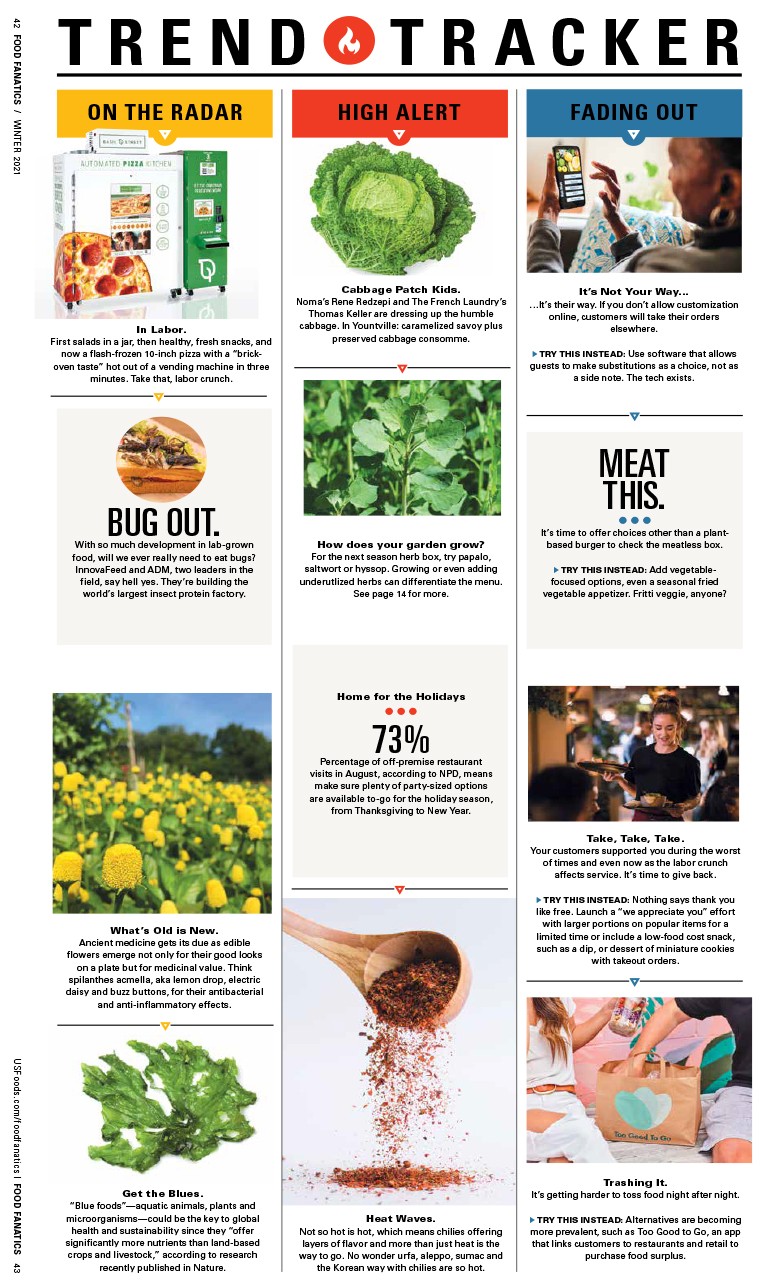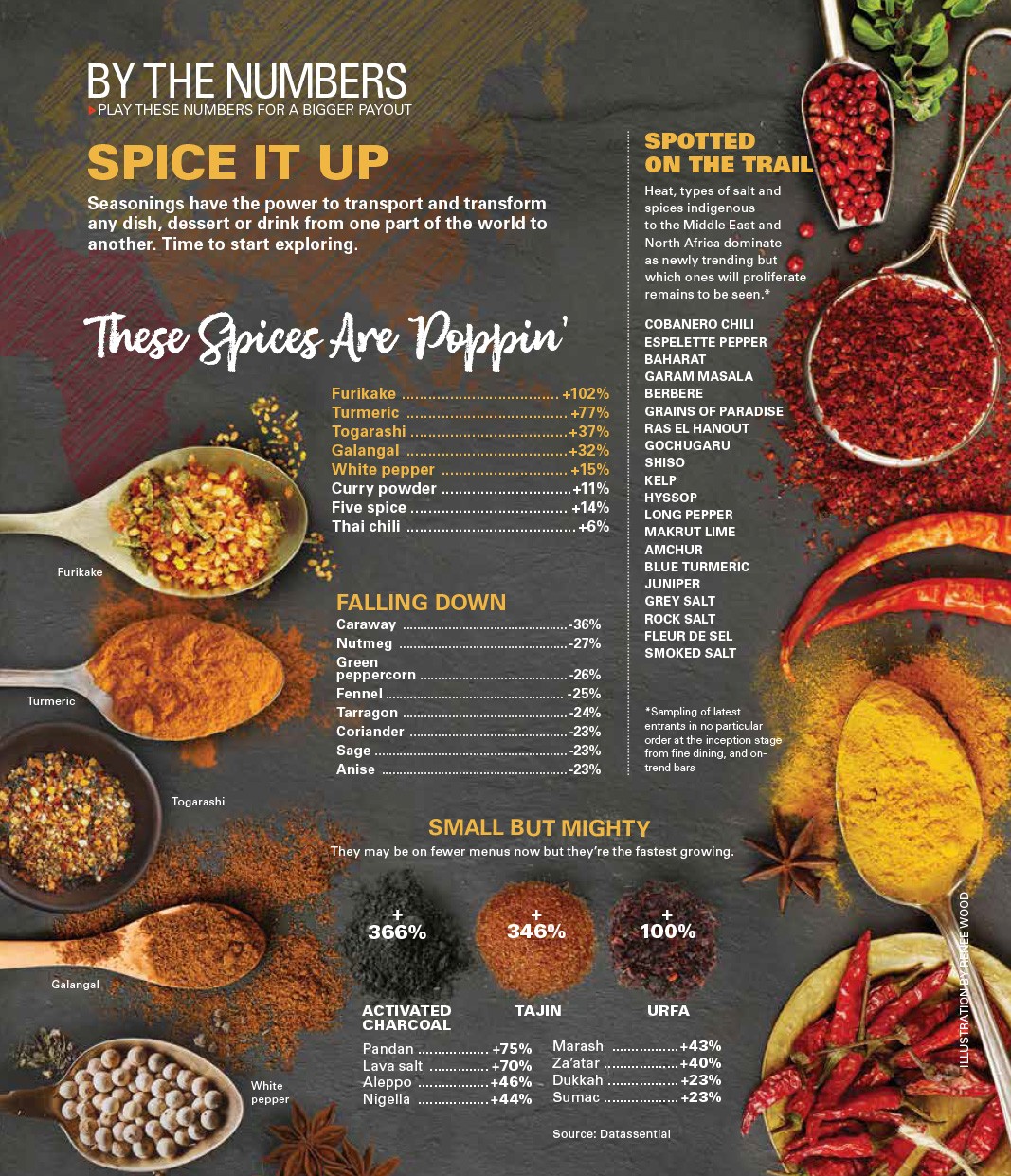Get Schooled in Restaurant Mentorship
Taking the lead to teach restaurant staff to succeed
Stop looking at mentorship as routine job training or a one-day stage. To get the most out of mentoring, it should be an ongoing relationship that can last anywhere from weeks to a lifetime.
“You can go to school and learn facts or process ... but I think one unique benefit to the mentor-mentee relationship is the chance to teach them how to think,” says Chris Cusack, CEO and co-founder of Houston-based restaurant group Treadsack.
Striking the balance between a structured program and organic development is an art. But done right, mentorships can create rewarding long-term careers for employees who give back in meaningful ways. Here are some guidelines to making a mentorship count.
The Candidate Test
Who makes a good mentor? The obvious choice might not always be the best one. Look for these qualities:
PLENTY OF PATIENCE
Practice makes perfect, which means mentors need to take the extra time to teach and be patient with a learning curve. Chef de Cuisine Bobby Palmquist of The Walrus and the Carpenter in Seattle says he uses every opportunity in the kitchen for learning. “Every time I do something new, I try to get someone else involved, whether breaking down fish or making aioli.”
LISTENING SKILLS
Sometimes the best student really can become the best teacher or, in this case, mentor. “You can’t just take your best cook and create a mentor. You can almost take your best student and turn that individual into a very good mentor because he or she is going to exhibit qualities of patience, more listening than talking,” says Andrew Curren, executive chef-partner of Elm Restaurant Group in Austin, Texas.
Humility Helps
No one likes a know-it-all, so practice what you preach. “No one has all the answers, and what worked for me might not work for my mentee,” Cusack says. “Rather than just answering a question that I’m asked, I’ll go with more of a discussion than a question-and-answer.”
A Discerning Eye
Realistically, not everyone is looking to mentor or be mentored, says Jason Dady, chef-owner of Jason Dady Restaurants in San Antonio, Texas. “It’s about taking the time to find the three, four, five key people who are interested in making the next step.”
Dear MentorChefs sound off on their mentors. Bobby Palmquist “I started working for Renee Erickson at the now-closed Boat Street Cafe when I had no professional cooking experience. I basically learned to cook with her teaching me along the way…Marie Rutherford, the chef at the Whale Wins (where I used to work as sous chef), also taught me a lot. The biggest thing I've learned…techniques aside, is patience.” Jessica Vazquez “I've been working with Chef Jimmy Papadopoulos at Bohemian House for about a year now, and ... I was blown away at how kind, down-to-earth and passionate he (is) about food. Not only does Chef Jimmy continue to teach me the importance of being a great cook, he also teaches me the importance of being a great person. I will forever be grateful to him for that.” Andrew Curren “My first job in New York was the Danny Meyer family at Tabla restaurant. (Chef-partner Floyd Cardoz) is an amazing chef but also an amazing father and husband. What I took from him was the important balance of family and work, being healthy and taking care of yourself … so that you can execute at a high level.” |
Get to Work
So, you’ve found a mentee. How to make your training stick:
Set Clear Goals
Find out what motivates your mentee, and offer challenges for professional development. Dady asks his mentees to list 10 things they’d like to learn, whether it’s breaking down whole fish or management skills such as purchasing, finances and customer service. Just make sure goals are specific and measurable.
Communicate Clearly and Often
Ongoing personal interaction should be underscored, says Shelley Menaged, manager of special projects and student programs at the James Beard Foundation. For example, regular check-ins with participants in the Women in Culinary Leadership mentorship program provide insight for both sides. “You really (have to talk) to get the inflection, to get the energy, to get your point across, to actually hear and sense if they’re actually receiving it,” she says.
Don’t Assume
Young staffers can be embarrassed to admit there’s something they don’t know or understand, so make sure to reinforce your points. “They roll with the punches, and then you get weeks down the road and realize that they had no idea what you’re talking about,” Dady says. “Take the time to make sure you explain it, so they get a good comprehension.”
Take Time to Process
Set aside time to recap what you’ve taught after shadowing. “When you’re cooking, you don’t have time to tell them, ‘Hey, when we were rolling that omelet, did it make sense why I made the curds really small with the eggs and the spatula over medium heat?’” Curren says. “That (time) outside, away from the heat, is ultra-important.”
Balance Compliments and Critique
Positive reinforcement balanced with constructive criticism pushes mentees to improve. “We use a lot of compliment sandwiches,” Curren says. “‘Hey, you did this gnocchi great, the portion size was good. I feel like the pan was too hot ... the garlic was a little burnt, but the consistency of the sauce was perfect.’ You give them something to work on, and you give them some positive reinforcement.”
Lead by Example
The best way to instill mentees with pride and dedication is leading by example. “When your employees see someone working hard constantly, they are pushed to work harder,” Palmquist says.
Carve Outside Opportunities
A good mentor extends opportunities outside of the workplace. “When you run a successful business, you have a lot of friends that cover a lot of different areas,” say Dady, who will pair an employee interested in breaking down whole animals with a fish company to learn butchering.
Keep in Touch
Mentorships don’t have to end when the mentor or mentee moves on to another job. The best praise a mentor can receive is seeing a mentee move on to a new opportunity, Dady says.
“You’re only as good as the springboard you provide for the rest of your staff. If they’re not going on to do great things, then you haven’t done your job.”
Lisa Arnett is a Chicago-based freelance writer and former dining editor of Chicago Tribune’s RedEye. Follow her on Twitter @lisamarnett.



